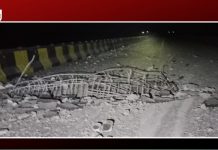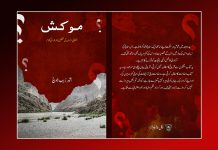By Sangeen Baluch
The current situation in Balochistan starkly mirrors the historical atrocities faced by women during the Bangladesh Liberation War. Reports of women being forcibly taken by police, stripped of their headscarves, and subjected to physical and psychological abuse are deeply distressing. Such actions are not mere violations of human rights; they are profound affronts to the dignity and respect that we, as Baloch people, have always accorded to women in our culture.
It is profoundly tragic that our adversary is Pakistan, which continues to perpetrate radical and unjust actions in Balochistan. The animosity directed towards the Baloch people has left scars that are not only physical but also deeply psychological, affecting generations. The Pakistani military has proven ineffective in confronting the resilient fighters along the mountainous borders, instead opting to exert its power through acts of violence against vulnerable populations. Rather than engaging directly with Baloch fighters in combat, the military has resorted to heinous tactics, including the targeted killings of children, extrajudicial executions of missing persons, and violent raids that dishonor women and disrupt families.
The parallels to the tragedy in Bangladesh during the 1970s are chilling. In that era, while countless women escaped outright murder, they endured unspeakable horrors, with approximately 400,000 subjected to rape and sexual enslavement. This dark chapter in history not only reveals the depths of human cruelty but also underscores the necessity for remembrance and justice for the victims and survivors. The haunting legacy of these atrocities continues to shape the collective memory and identity of the Bengali people, serving as a stark reminder of the consequences of hatred and intolerance.
Throughout our conflicts, Baloch fighters have adhered to a code of honor, deliberately sparing the elderly, women, and children of Punjabis. A recent example is the Jaffar Express incident, where Baloch fighters targeted military personnel but ensured the safety of non-combatants, demonstrating a clear distinction between combatants and civilians. This adherence to a moral code stands in stark contrast to the treatment of women in Balochistan, revealing the depths of Pakistan’s cruelty. The streets of Balochistan bear witness to countless injustices inflicted upon our people, and nature itself seems to echo the cries of the oppressed. As we gaze upon our mountains and breathe in the air of our homeland, we are reminded of the suffering that permeates our existence.
Amidst this turmoil, questions arise regarding the actions of educated Baloch women who resort to self-sacrifice. When peaceful protests are met with brutal repression, and when their husbands, fathers, and brothers are abducted, what options remain for these women? Their desperation is palpable; it breeds anger and drives them to extreme measures. When hope is extinguished, the value of life diminishes, leading individuals to perceive martyrdom as a viable path for reclaiming their rights and advocating for their homeland.
The prevailing sentiment among many Baloch individuals is one of disillusionment, as they grapple with the harsh reality that the state remains largely unresponsive to their voices. This lack of recognition of their rights, coupled with the absence of meaningful support, exacerbates feelings of marginalization. It raises an essential question: how can individuals seek assistance from a government that is complicit in their suffering? A government that engages in acts of brutality—including the killing of children, dishonoring women, and violating homes—ultimately undermines the fundamental dignity of its citizens.
This cycle of violence and despair is perpetuated by a lack of choice. In the absence of hope, the line between life and death blurs, and the fight for dignity becomes intertwined with the struggle for survival. Desperation can lead to a sense of powerlessness, but it can also ignite a fervent desire for resistance. The notion of resistance becomes integral to the struggle for dignity and rights, as individuals seek to reclaim their agency in the face of oppression.
As the oppressed navigate the complexities of their realities, many find themselves drawn to the mountains, a powerful symbol of refuge and empowerment. This retreat into the mountains signifies not only a physical escape from urban despair but also an assertion of identity and a commitment to the pursuit of freedom. In this quest, the mountains represent a space where resilience can flourish, and where the fight against systemic injustice can be waged with renewed vigor.
The current state of Pakistan is characterized by a troubling paradox. The government has begun to engage in conflict with those it should be negotiating with, while simultaneously seeking dialogue with those it should oppose. The military’s approach reflects a disarrayed strategy: it wields arms against those it should be surrendering to while capitulating to those it should confront. This unsettling dynamic highlights the complexity and urgency of the issues at hand, revealing a nation grappling with its own contradictions.
In summary, the plight of the Baloch people in the face of systemic oppression requires a nuanced understanding of both historical context and contemporary realities. The struggle for dignity and rights remains a vital and ongoing journey, marked by resilience, resistance, and a profound yearning for justice. Today, we must stand in solidarity against such injustices, ensuring that the voices of the oppressed are heard and that their suffering is not forgotten. The dignity of every woman must be upheld, and we must strive to create a world where respect and honor are the norm, not the exception.
Disclaimer: The views and opinions expressed in this article are those of the author and do not necessarily reflect the official policy or position of The Balochistan Post or any of its editors.





























